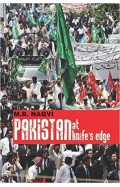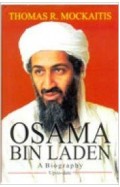The War at Home
By: Frances Fox Piven
-
Rs 265.50
- Rs 590.00
- 55%
You save Rs 324.50.
Due to constant currency fluctuation, prices are subject to change with or without notice.
We are offering a high discount due to slightly damage.
While numerous analysts have discussed, and decried, the geopolitical ambitions of the Bush administration and its neoconservative allies, the attention to America's imperial posture overseas has turned eyes away from a crucial dimension of belligerent foreign policy: the domestic politics of war. Frances Fox Piven, one of the most celebrated US social scientists, raises questions others have not. She examines the ways the War on Terror served to reinforce the Bush administration's political base and analyzes the manner in which flag-waving politicians used the emotional fog of war to further their regressive social and economic agendas. Always in the past, US governments that made war sooner or later tried to reward their peoples for the blood and wealth they were forced to sacrifice. During World War II, tax rates on the wealthy rose to 90 percent; toward the end of the Vietnam War, eighteen-year-olds were given the right to vote. In this war, taxes on the rich have been slashed, and democratic rights are being rolled back. Even veteran's benefits have been sharply reduced. With an analysis of the way in which war has propped up American rulers, "The War at Home" makes sense of the Bush administration's military adventures abroad in the context of current domestic policy.
| Book | |
| What's in the Box? | 1 x The War at Home: The Domestic Causes and Consequences of Bushs Militarism |
We are offering a high discount due to slightly damage.
While numerous analysts have discussed, and decried, the geopolitical ambitions of the Bush administration and its neoconservative allies, the attention to America's imperial posture overseas has turned eyes away from a crucial dimension of belligerent foreign policy: the domestic politics of war. Frances Fox Piven, one of the most celebrated US social scientists, raises questions others have not. She examines the ways the War on Terror served to reinforce the Bush administration's political base and analyzes the manner in which flag-waving politicians used the emotional fog of war to further their regressive social and economic agendas. Always in the past, US governments that made war sooner or later tried to reward their peoples for the blood and wealth they were forced to sacrifice. During World War II, tax rates on the wealthy rose to 90 percent; toward the end of the Vietnam War, eighteen-year-olds were given the right to vote. In this war, taxes on the rich have been slashed, and democratic rights are being rolled back. Even veteran's benefits have been sharply reduced. With an analysis of the way in which war has propped up American rulers, "The War at Home" makes sense of the Bush administration's military adventures abroad in the context of current domestic policy.
The War at Home - The Domestic Costs of Bush's Militarism
By: Frances Fox Piven
Rs 3,315.20 Rs 4,144.00 Ex Tax :Rs 3,315.20
Zubin Mehta: A Musical Journey (An Authorized Biography)
By: VOID - Bakhtiar K. Dadabhoy
Rs 472.50 Rs 1,050.00 Ex Tax :Rs 472.50
Myths Illusions and Peace: Finding a New Direction for America in the Middle East
By: Dennis Ross
Rs 876.00 Rs 1,095.00 Ex Tax :Rs 876.00
Operation Dark Heart: Spycraft And Special Ops On The Frontlines Of Afghanistan And The Path To Victory
By: Anthony Shaffer
Rs 1,800.00 Rs 2,250.00 Ex Tax :Rs 1,800.00
Anna Hazare: The Face Of Indias Fight Against Corruption
By: Pradeep Thakur
Rs 225.00 Rs 300.00 Ex Tax :Rs 225.00
How To Win A Cosmic War God Globalization And The End Of War
By: Reza Aslan
Rs 556.00 Rs 695.00 Ex Tax :Rs 556.00
Witness To America: A Documentary History Of The United States From The Revolution To Today
By: Douglas Brinkley
Rs 3,996.00 Rs 4,995.00 Ex Tax :Rs 3,996.00
No similar books from this author available at the moment.
No recently viewed books available at the moment.
Zubin Mehta: A Musical Journey (An Authorized Biography)
By: VOID - Bakhtiar K. Dadabhoy
Rs 472.50 Rs 1,050.00 Ex Tax :Rs 472.50
The War at Home - The Domestic Costs of Bush's Militarism
By: Frances Fox Piven
Rs 3,315.20 Rs 4,144.00 Ex Tax :Rs 3,315.20














-120x187.jpg?q6)













